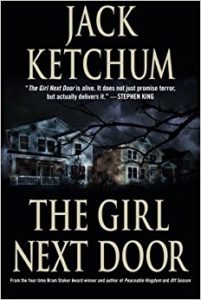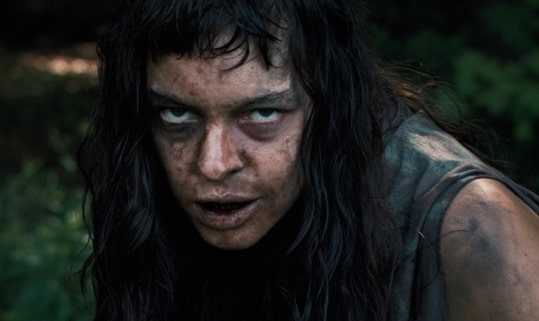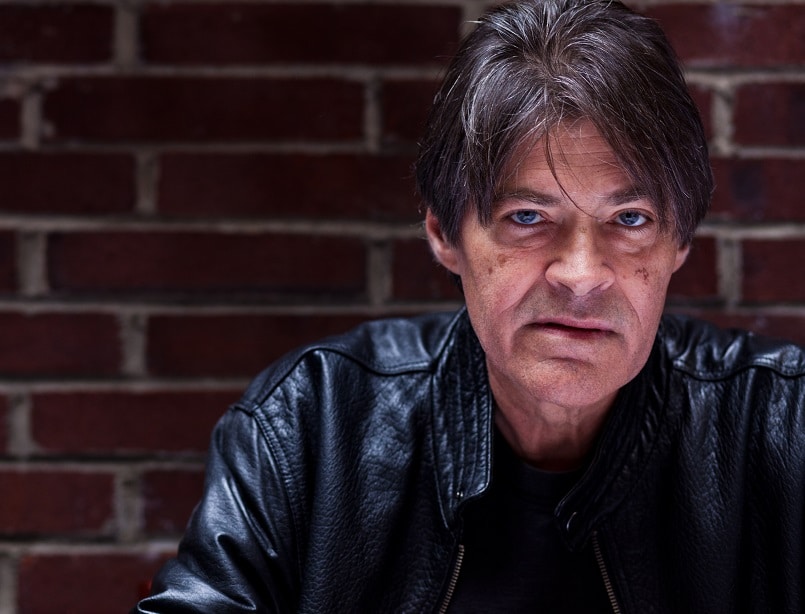We are deeply saddened by the news that Dallas Mayr, the American horror novelist who worked under the pen name Jack Ketchum, has died at the age of 71.
While his name has never been as well known as, say, Stephen King, Clive Barker or James Herbert, Ketchum was without question one of the most singular, brilliant writers to work in the horror genre in the past forty years; and his influence on 21st century horror cinema is undeniable.
I’m happy to be able to say that I once met Jack Ketchum, although I’m somewhat mortified to admit I didn’t know who he was at the time; I didn’t even wind up buying a book from him, damn it all. It was at New York Comic Con in March 2006, and he was one among a panel of horror writers, at which I turned out to be the sole audience member. Sportingly, they went ahead and did the panel anyway, and as I was just starting out as a writer with aspirations of becoming a horror novelist myself, it was all very educational and enjoyable. It was only some months later, back in the UK, that I started to see Ketchum’s name popping up more and more, and began to realise he was a big deal. Which, again, left me cursing myself for not having bought a book off him at the time.
 Soon thereafter I picked up his debut novel Off Season, a feral backwoods cannibal tale that was reportedly quite controversial on first publication; and I liked it. Not long after that I picked up The Lost, a considerably more grounded horror novel, and loved it. Not long after that I read The Girl Next Door… and I can honestly say, with no exaggeration whatsoever, that no other novel has affected me in so palpable a manner. This authentically horrific tale of a young woman subjected to unspeakable torture, all the more upsetting given that it’s based on true events, left me genuinely shaking, nauseous, choking back tears. We tend to throw around terms like ‘heartbreaking’ or ‘breathtaking’ in reference to works which, if we’re entirely honest, don’t actually inspire a truly physical reaction – but, for me, The Girl Next Door really did. I’ve never read it again and I’m not sure I ever will, but there’s no question that it left me a changed person.
Soon thereafter I picked up his debut novel Off Season, a feral backwoods cannibal tale that was reportedly quite controversial on first publication; and I liked it. Not long after that I picked up The Lost, a considerably more grounded horror novel, and loved it. Not long after that I read The Girl Next Door… and I can honestly say, with no exaggeration whatsoever, that no other novel has affected me in so palpable a manner. This authentically horrific tale of a young woman subjected to unspeakable torture, all the more upsetting given that it’s based on true events, left me genuinely shaking, nauseous, choking back tears. We tend to throw around terms like ‘heartbreaking’ or ‘breathtaking’ in reference to works which, if we’re entirely honest, don’t actually inspire a truly physical reaction – but, for me, The Girl Next Door really did. I’ve never read it again and I’m not sure I ever will, but there’s no question that it left me a changed person.
Ketchum broadened my mind as to the possibilities of horror. To this day we often see the mainstream baffled by material which doesn’t seem to fit the standard definition of what the genre is supposed to be, struggling to accept that something can be horror if it feels true to life, if it’s intelligent, if it’s plainly and simply good. Ketchum was a genuinely great writer, and in some ways it wouldn’t have been hard to see his work repackaged and resold to a broader readership as crime fiction or psychological thrillers. I’m glad that didn’t happen; horror is horror, and so far as I can tell Ketchum never had any qualms about his work being labelled as such, nor should he have.
 And it was around the same time that I first discovered Ketchum that his work started being adapted for film: The Lost in 2006, The Girl Next Door in 2007, Red in 2008, Offspring in 2009. Good films for the most part, although I’m not sure any of them quite managed to capture the primal strength of Ketchum’s prose. However, Ketchum’s most noted contribution to cinema came in 2011 in The Woman, directed by Lucky McKee and based on the novel Ketchum and McKee co-wrote. Though technically a sequel to Offspring centred on Pollyanna McIntosh’s feral woman, it made a considerably bigger splash following festival screenings, polarising opinion and becoming one of the most talked about horror movies of the time. The Woman remains divisive, and goodness knows it’s not a lot of fun to watch, but I myself was, and remain, hugely impressed by it. Again, I don’t think any film adaptation has quite captured the real spirit of Ketchum’s novels, but to my mind The Woman comes closest. (Here’s my review from FrightFest 2011.)
And it was around the same time that I first discovered Ketchum that his work started being adapted for film: The Lost in 2006, The Girl Next Door in 2007, Red in 2008, Offspring in 2009. Good films for the most part, although I’m not sure any of them quite managed to capture the primal strength of Ketchum’s prose. However, Ketchum’s most noted contribution to cinema came in 2011 in The Woman, directed by Lucky McKee and based on the novel Ketchum and McKee co-wrote. Though technically a sequel to Offspring centred on Pollyanna McIntosh’s feral woman, it made a considerably bigger splash following festival screenings, polarising opinion and becoming one of the most talked about horror movies of the time. The Woman remains divisive, and goodness knows it’s not a lot of fun to watch, but I myself was, and remain, hugely impressed by it. Again, I don’t think any film adaptation has quite captured the real spirit of Ketchum’s novels, but to my mind The Woman comes closest. (Here’s my review from FrightFest 2011.)
Ketchum and McKee continued to write together; their most recent collaboration, The Secret Life of Souls, was released in November 2017. Earlier today, McKee wrote on Twitter, “Love you, friend.”
It’s a terrible cliche that great artists are never properly appreciated until they’re no longer with us, but I sort of hope that proves true for Jack Ketchum. While he was revered amongst a comparatively select few, he truly was a master of his craft who deserved to be held in a far higher regard, and we are left poorer without him.
